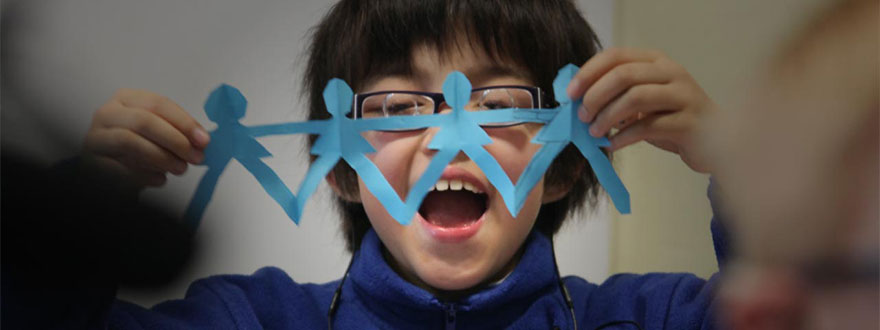
There are approximately 4,200 children with a multi-sensory impairment (i.e., 3 in every 10,000 children) in the UK. It is an extremely rare disability that affects both sight and hearing. Although, the degree of impairment will be different for every child and may change over time, children and young people with MSI will be deprived of sensory information compared to their atypical peers. This may lead to a limited perception of the world around them. They may lack the confidence or skills to explore the space beyond arm’s reach. It may be harder to maintain the same pace of learning or process and respond to information. Knowing how to accommodate individual learning needs will give these learners the best chance to explore their world and make progress in school.
This course looks at the impact multi-sensory impairment can have on a learner’s life. It shows how you can make your classroom and practice more inclusive for these learners and offers practical assessment ideas and intervention strategies. You will learn how to assess the needs of a learner and go on to develop a support plan consisting of SMART goals and interventions, which you will implement and later review to determine how well it has met the learner’s specific developmental needs.
The course content relates to learners in compulsory education (4-18 years) and responds to the information needs of the whole community centred around supporting the child/young person with multi-sensory impairment. Parents and carers benefit from raised awareness of their child’s needs. Advisory teachers, therapists and educational psychologists gain access to evidence based CPD resources that can be used to strengthen capacity in their local authority and schools. Schools can use this course to train individuals or groups of teachers and teaching support staff as part of a school’s improvement plan or a whole-school initiative. NQTs/RQTs also build a secure knowledge of the graduated approach at the start of their career.
Our courses are structured into four sections. Click on the section headings to reveal page titles and some example content.
Learn about the main senses and how they work together, and the common causes of MSI. Explore the impact of MSI on communication, access to information, movement/mobility and development.
- Section objectives
-
What do we mean by multi-sensory impairment?
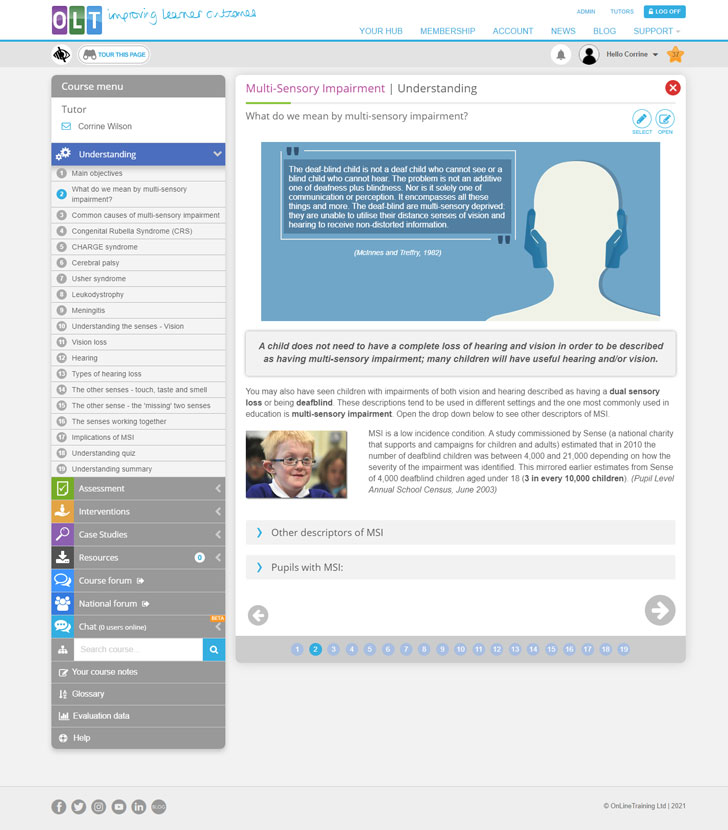
Screenshot from Understanding page 2 - Common causes of multi-sensory impairment
- Congenital Rubella Syndrome (CRS)
- CHARGE syndrome
- Cerebral palsy
- Usher syndrome
- Leukodystrophy
- Meningitis
- Meningitis
-
Vision loss
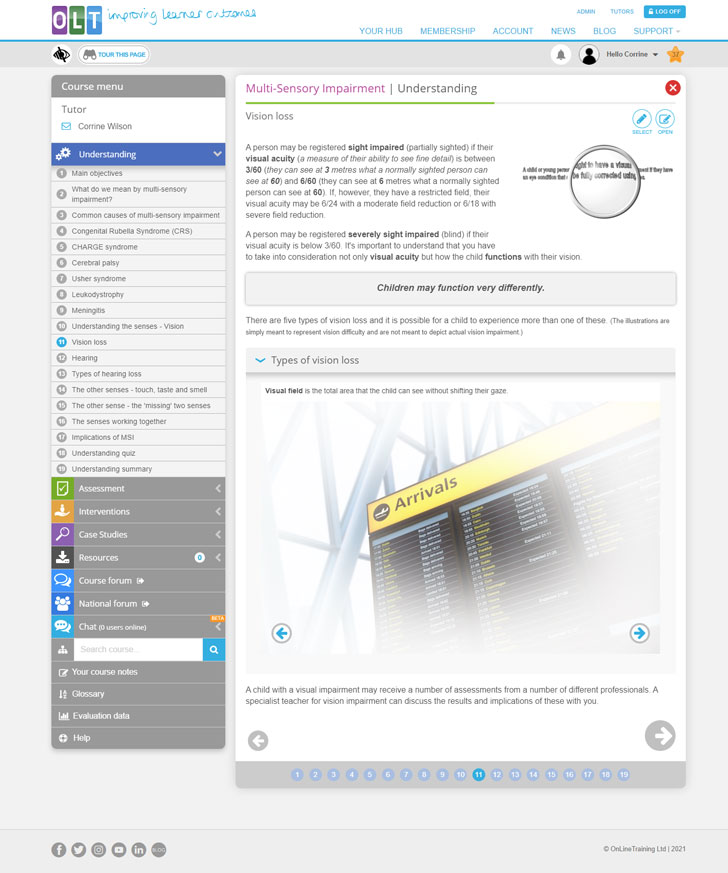
Screenshot from Understanding page 11 - Hearing
- Types of hearing loss
- The other senses – touch, taste and smell
- The other senses – the ‘missing’ two senses
- The senses working together
- Implications of MSI
- End of section quiz
- Section summary
Understand the teacher’s role in supporting assessment. Explore various forms of assessment, including formal and informal, functional, objective, environmental and social care.
- Section objectives and your learner profile
-
Knowledge and skills required to undertake an assessment
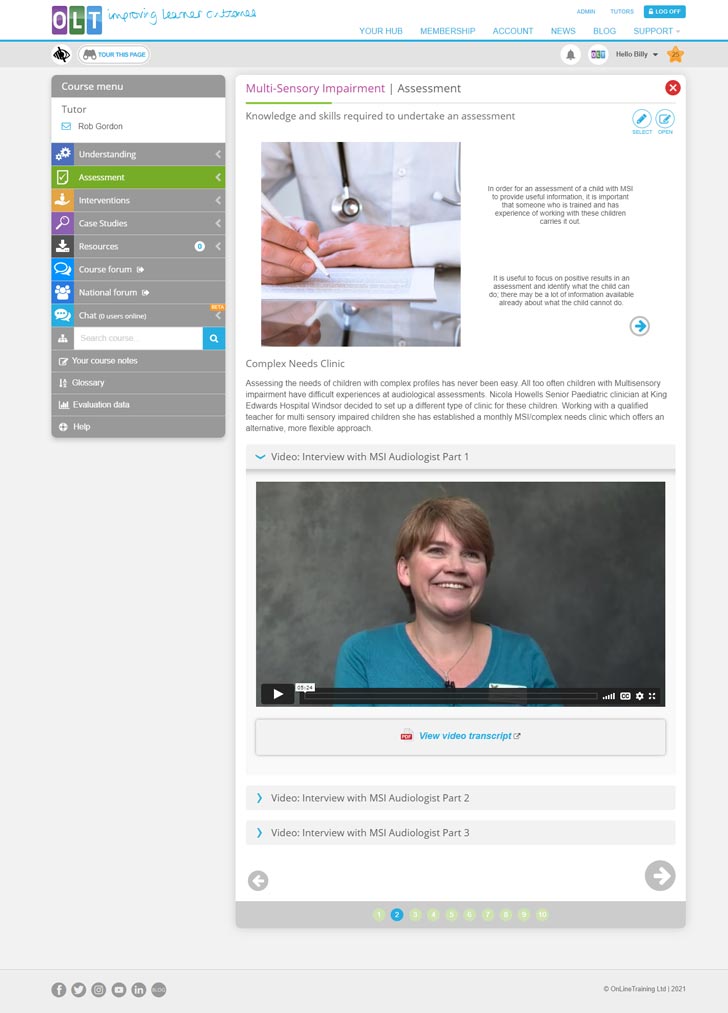
Screenshot from Assessment page 2 - Multi agency assessment
- Formal and informal assessments
-
Environmental Assessment
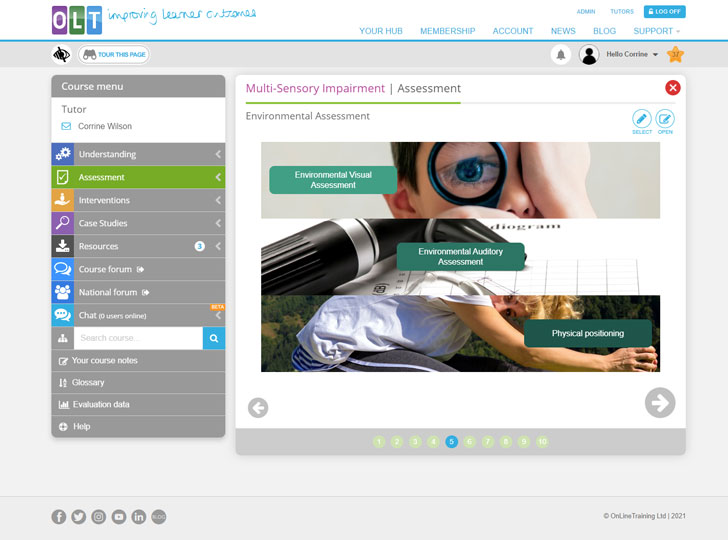
Screenshot from Assessment page 5 - Social care assessments
- Your role in supporting assessment
- Course assignment: Your learner’s three SMART goals
- End of section quiz
- Section summary
Explore a range of support options and roles. Understand the importance of child-centred approaches and how to respond effectively to the child’s strengths and needs.
- Section objectives
-
The child as centre
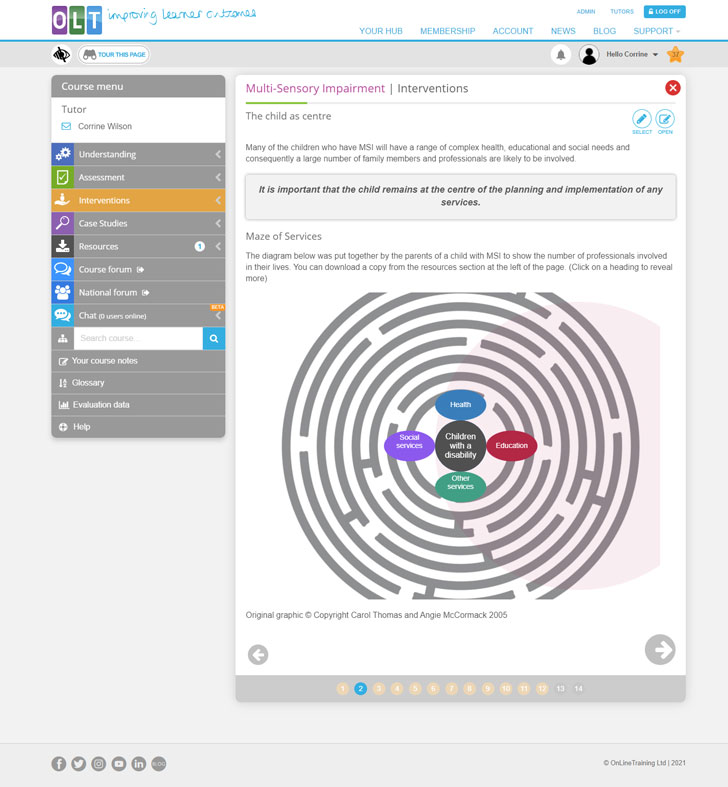
Screenshot from Interventions page 2 - Multi agency working
- Individual learning styles
- Communication
- Access to the environment
- Differentiation of materials
- Curriculum access
-
Roles of education professionals
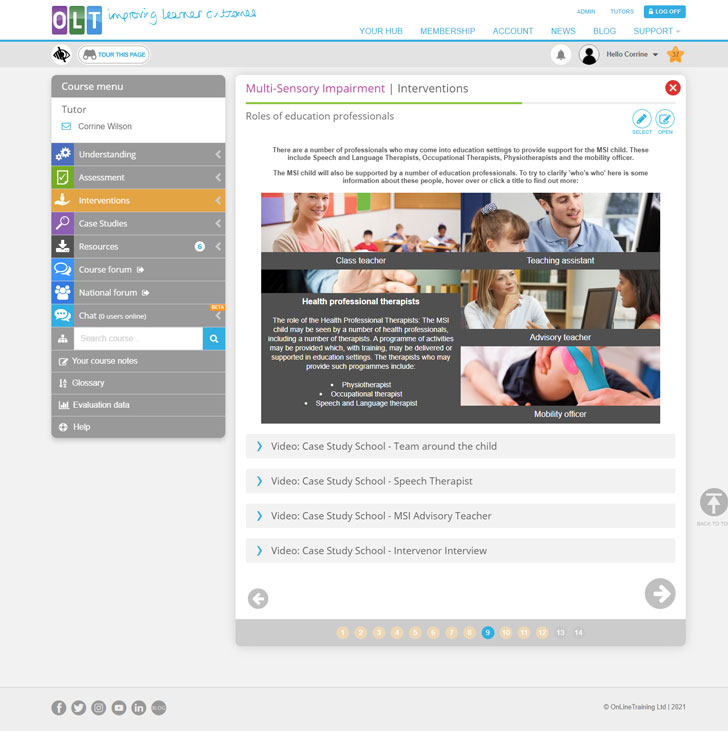
Screenshot from Interventions page 9 - Recognising and celebrating
- Where to go for more support
- Course assignment: Planning your learner’s interventions
- End of section quiz
- Section summary
View real case studies that illustrate the needs of the individual, the interventions implemented and their resulting progress.
- Case study: Katie
- Case study: Key Stage 1 – Francesco
- Case study: Key Stage 1 – Oscar
- Case study: Key Stage 2 – Billy
- Case study: Key Stage 2 – Joshua
- Case study: Key Stage 2 – Rebecca
- Case study: Transition to secondary school
- Case study: Key Stage 4 - Andrew
Other Position
Advisory Teacher
Teaching Assistant
Advisory Teacher
Parent/Carer
Qualified Teacher
Qualified Teacher
Qualified Teacher
Teaching Assistant
Teaching Assistant
Course learning outcomes
On successful completion of the course, you will be able to:
- identify the impact of a multi-sensory impairment on communication, movement and development
- describe the learning needs of a child/young person with a multi-sensory impairment
- identify and engage with multi-agency teams to support your pupil and their families
- analyse and evaluate the visual, acoustic and physical environment
- use observation tools to describe the function skills of learners
- make reasonable adjustments (graduated approach) to consider a child’s developmental profile and needs
- devise interventions to develop communication and social skills
- maximise the inclusion of learners and the learning environment
- make reasonable adjustments to the curriculum
- create a support plan for a pupil/group of pupils in your school

